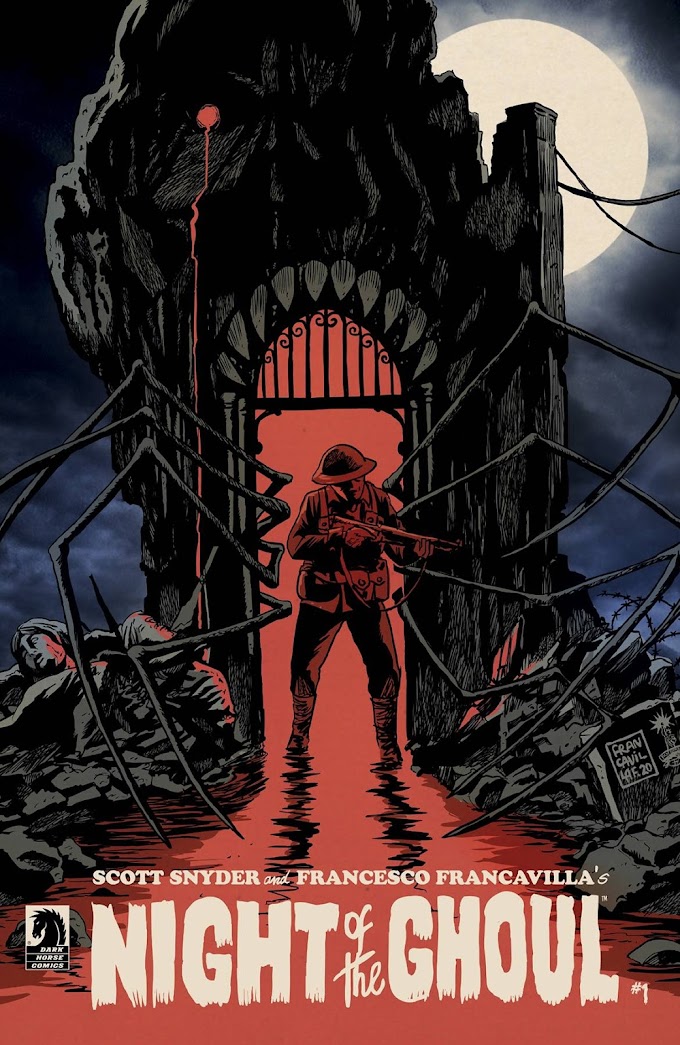 Written by Tite Kubo
Written by Tite KuboIllustrated by Tite Kubo
Viz
I have no idea why I started watching the Bleach anime a few months back, but I did. It turned out to be pretty cool, too, with characters I found fun to follow and a good balance of comedy versus action.
Usually I read the manga first before sampling the anime but in this case I did not. I think I was a bit concerned that as a Shonen Jump title, the manga might be skewed a bit too young for my taste.
But after checking around, I was told that was not the case, so I finally got it out from the library. I need another new series to start like I need a hole in my head, but hey, it's 2010 so why not start it off with a long-running shonen title to get me out of my shojo-seinen comfort zone?
Bleach is the story of a teen who can see ghosts. He lives with them every day and doesn't think a whole lot of it. One day, a strange girl shows up telling him he can't possibly do this, despite all appearances to the contrary. You see, she's a soul reaper, and she takes good souls to their reward while fighting those lost souls who wish to prey upon the living.
Ichigo, a fiery redhead with a temper to match, refuses to just stay put when one of these lost souls (or hollows) goes after his family. Soon he's right in the thick of the battle, and ends up with the powers of a soul reaper. There's only one problem--he doesn't want them!
Now powerless, the original soul reaper, Rukia, joins Ichigo's world, much to his chagrin. (This sets up the tried and true love-hate relationship dynamic so common to most of the manga I read.) As more hollows come Ichigo's way, he must make a decision. Will he help carry on Rukia's mission? With his school friends in the way of supernatural danger, does he have a choice?
One of the fun parts of reading the manga and watching the anime is seeing the differences between the two. In this version, the soul reapers are (at least for now) a much more beneficial organization as Rukia explains that even killing hollows is a mercy. (In the anime, they seem far more sinister from the get-go, as do the hollows themselves.) As a result, Ichigo seems more of a
jerk for being reluctant to help. I also noticed that people seem far more comfortable with the supernatural than they did in the anime. The weird goings-on appear to be a bit less of a surprise, and I'll be interested to see how that aspect of the show plays out over time.
As far as the manga itself goes, I was quite pleased with the pacing and storytelling of Kubo. There's a lot of fun banter even in the face of danger, but Kubo also handles the serious moments with great skill, such as Orihime facing her brother. I think the character progression of Ichigo also makes this a winner. He's an uncaring teen at the start, but by the end of even this first volume we are starting to see changes.
Plus there's the silly stuff. Like Orihime talking about how she regularly gets hit by cars or Ichigo's father's Ranma-like insistence on attacking his son. While things are not quite as exaggerated, the tone of the book does have a Rumiko Takahashi influence. That's certainly not a bad thing!
Surprisingly, Kubo does not do too many exaggerated characters in the book. Most of the artwork is pretty straightforward, except for the monsters and of course Ichigo's sword. I had no trouble at all following the action, as sometimes happens in this kind of story. I was really impressed by how clean the art was, actually, as that was another thing I worried about before starting the series.
Bleach is definitely fun, with just the right pacing of action and comedy that makes for a good shonen story (in my limited experience). I will definitely keep reading and would recommend it to anyone who hasn't read it yet but is looking for a new shonen title to try. (I have a feeling I'm one of the few people who hasn't at least tried this yet.) I just have one question--why the heck do they call this series Bleach, anyway? Will I ever find out?





![Sweat and Soap [Ase to Sekken] by Kintetsu Yamada](https://blogger.googleusercontent.com/img/b/R29vZ2xl/AVvXsEgMnQltxjWqGS1_duhCp9Er1a0NbALuSFrqvjaV4_PjN_w67xCGghYt-l0qKyqTH7Ei7gbq_mxVq8aPAuOiyaArwAMLJWhpGmOYaARUBnwvjmv2-ZIe20m_zR5CvKnPdI6US_AuOnmi3gSX/w680/57525895-BA7E-4EF8-9FE4-89F9C164E1A4.jpeg)

